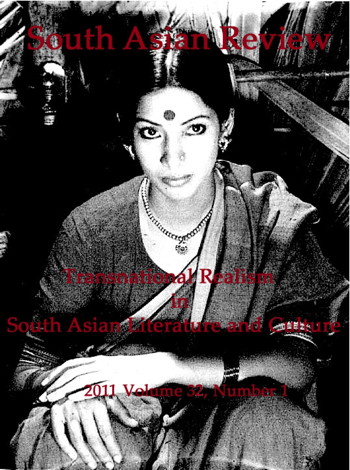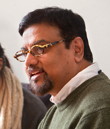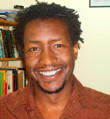ARTS & HUMANITIES
Enthusiasm for professor's ideas sparks new organization

An interview English professor Satya Mohanty gave to the South Asian Review following the publication of his book "Colonialism, Modernity and Literature" has created an explosive reaction and a new organization, the Global South Cultural Dialogue Project. See larger image
While Barack Obama might be used to having his interviews spark global reactions, most academic comments are paid far less attention. But an interview English professor Satya Mohanty gave to the South Asian Review following the publication of his book "Colonialism, Modernity and Literature" has created an explosive reaction and a new organization, the Global South Cultural Dialogue Project (GSP).
"Global South" refers to Africa, Latin America and Asia, as well as corresponding minority groups in the West. Co-founder Mukoma wa Ngugi, who joined Cornell's English department in July as an assistant professor, explains that rather than always using European thought or a European perspective as a baseline, GSP is based on the idea that "we should talk directly with each other and see what we can uncover about the world around us and how we are connected." He says that while the idea is not new, the enthusiastic response to GSP from scholars and editors working in both literary and popular media has been a surprise.

Satya Mohanty See larger image
The 30 founding members of GSP, including five from Cornell, plan to facilitate conversations about how different societies have responded to questions of language, identity and the role of culture in the work of decolonization. Their discussions will examine the ties that bind countries of the Global South and help create a more democratic and egalitarian global culture.
"We're at a moment where there are new possibilities," says Mohanty. "While we need to be aware of the way colonial ideology shapes us, we also need to recognize that there are ways of going beyond it."
GSP's first initiatives are two forums, intended to begin building South-South links and to shape academic discussions of world literature. The first forum, consisting of responses to Mohanty's interview, appeared in India's Journal of Contemporary Thought (JCT) in August, as well as in magazines and newspapers in Kenya, China, India, the United Kingdom, the United States, South Africa and elsewhere. In December, a special issue of JCT will feature scholars and writers working in the Global South responding to noted Kenyan author Ngugi wa Thiong'o's new collection of essays "Globalectics: Theory and the Politics of Knowing," which will also be published in numerous academic and popular media worldwide.

Mukoma wa Ngugi See larger image
An inaugural conference is also being planned and will be held at Shanghai Jiaotong University.
Mohanty's interview comment that "the long intellectual shadow of the age of European empire seems to be receding a bit, and we have remarkable opportunities to work across cultures to learn from one another" inspired wa Thiong'o to write an essay titled "Asia in My Life." Through efforts by Mohanty and wa Ngugi, this essay has now been published around the world. The essay was a magical moment, says Mohanty, triggering even greater interest in GSP.
"The idea of GSP has grown so much that we are now literally trying to catch up," says Ngugi. He sees Cornell as a natural home for GSP, since it is "a place that practices serious scholarship while welcoming intellectual risk-taking as equal partner."
Mohanty attributes the enthusiastic response from editors and readers of popular magazines such as India's Frontline, which published the first excerpt from Mohanty's interview, to the reigniting of cultural memory.
"Right after decolonization in the '40s through the '60s, there were important connections made between countries of the Global South, but these have been forgotten," Mohanty says. "There is a great deal of willed forgetting that we need to reverse. A revitalized cultural memory will also help us uncover some of the international roots of our current social movements for environmental and gender justice, and minority, indigenous and LGBT rights."